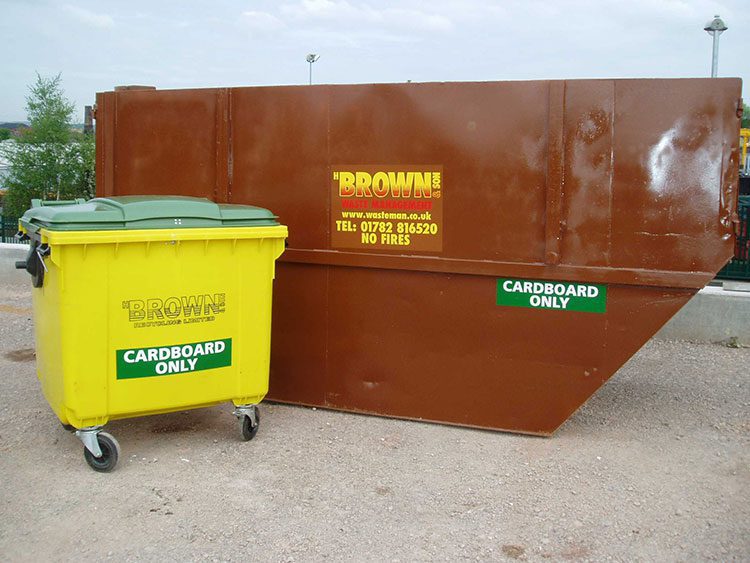
Waste Management: Tips for Your Sector
Here at Brown Recycling, we work with clients from a wide range of different industries, meaning that we have built up an impressive bank of knowledge about how to best manage waste in different environments and scenarios. In this article, the Brown Recycling team is going to be taking a look at some waste management tips for several key sectors.

Construction
- One of the most important things that you can do to manage waste during a construction project is to minimise the amount that you create in the first place. This is why it pays to make sure that you think very carefully about what you order at the start of a project, so that you don’t overdo it.
- A lot of waste on a construction site comes from damaged goods and materials. This is because these materials are often left stored or lying around before they actually get used. To combat this, try and sync order times with your construction schedule – this way, materials get used as soon as they arrive and damage is minimised.
- When it comes to selling unused building materials, don’t think all hope is lost if you can’t go back to the builders merchants or a reputable reclamation facility. There are many buyers out there on sites like Gumtree and Facebook Marketplace who are looking for quality, unused building materials, so make sure that you look there too.
Hospitality
- According to WRAP, the hospitality industry discards around £2.5 billion in food waste each year, so anything that can be done to combat this, should be done. One core change that every hospitality business should make when it comes to food is to use the same core ingredients across the whole menu, this will ensure that fresh, seasonal goods are eaten rather than chucked out.
- In hotels, plastic containers of soap, shampoo and conditioner can easily stack up over the course of a year. Why not try using refillable dispensers for soap, shampoo and conditioner for each room. It might seem like a small change, but will make a big difference in the long run.
- LED lights use about 75% less energy than regular bulbs and last for over 50,000 hours. By switching to LED, you will save huge amounts on maintenance in the long run, all while producing less glass waste, something which the hospitality industry desperately needs to do!
Events
- Going paperless would be an ideal way to start producing less waste, but we understand that physical marketing materials can still be a great way of communicating important information to attendees of events. If you are going to hand out information packs, try to avoid sending anything out prior to the event, and instead simply hand out the physical materials when people arrive. This will avoid duplication and, hopefully, reduce waste.
- When it comes to printing your marketing materials – so anything from brochures to banners and posters – try to use an eco-friendly printing company that uses recycled and chlorine-free paper. This will help to reduce your carbon footprint as well as boosting your company’s green credentials, something that your customers will appreciate!
- Cut down on single use plastics by creating paraphernalia like badges, lanyards and display stands that aren’t event specific. This way, you can use them again and again. While you might take a hit on branding, you will save money and also create far less waste.
Does your business need help coming up with ways to minimise waste? Here at Brown Recycling, we’ve worked with all kinds of companies over the years to create bespoke waste strategies that deliver long-term value. Contact us today for more information about how we can help you.
This website uses cookies to enhance your browsing experience and deliver personalised ads. By clicking “Accept All Cookies”, you agree to the storing of cookies on your device to enhance site navigation, analyse site usage, and assist in our marketing efforts.



